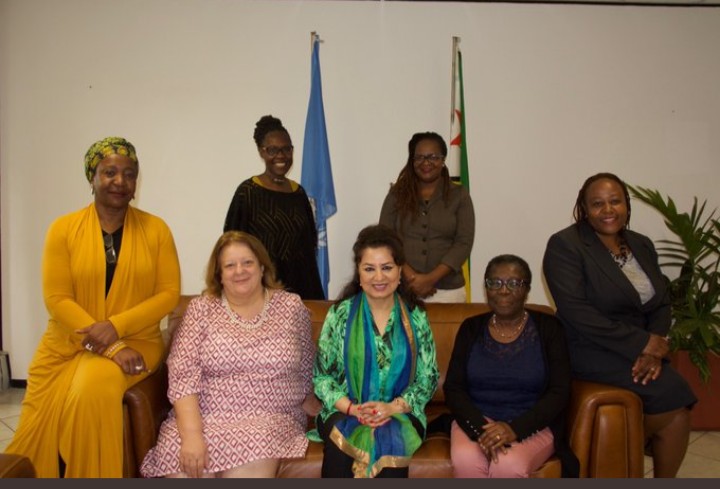By Joyce Mukucha and Anyway Yotamu
As the Zimbabwean Government is due to present its 6th State Party Periodic Report to the Committee on the Elimination of Discrimination Against Women (CEDAW) next month in Geneva, Switzerland, two CEDAW experts from Nepal and Ghana visited the country to share their knowledge and brief government and civil society.
The engagement was mainly aimed at figuring out how Zimbabwe can improve on spearheading collective activism on gender issues affecting women and girls.
Speaking during a Civil Society Organisations briefing in Harare on the 16th of January 2020, a former member of the United Nations on CEDAW, Dorcas Coker-Appiah said it was imperative for the Committee to engage with different CSOs since it extends to them an opportunity to understand the process on how issues that discriminate women and girls can be dealt with.
She added that it takes concerted efforts for everybody including Government, CSOs, Traditional and religious leaders, parents among stakeholders to eliminate discrimination amongst women as she stressed that women and girls need to be included in all development and economic processes.
“It is crucial that we engage with CSOs so that they have a better understanding of the process of eliminating all forms of discrimination. Zimbabwe as a nation signed and ratified the convention and is mandated to present periodic reports so as the committee, we are here to make the CSOs bear in mind that they have the role to complementing Government through providing additional information.
“Taking a closer look on Africa as a whole, what continuse to discriminate women are cultural values where women are not given the opportunity to express their views. It should be noted that culture is dynamic and we must not stick to older cultural values that undermine women. The world is evolving. Thus, as the committee, we are making strides to ensure that in every country, situations in which women are discriminated are reduced and we are also pushing hard to guarantee that there is increase of resources that specifically cater for women and girls,” she said.
In an interview with Spiked Online Media, the current Vice-Chairperson of the United Nations on CEDAW, Ms Bandana Rana commended various coalitions for continuing to strengthen gender equality as well as taking women development forward.
“I’m very impressed with vibrant women coalitions in Zimbabwe and their passionate commitment to take forward gender equality collectively. As CEDAW and civil society, we realise that there are many ways in which CSOs can assist the Government in preparing a comprehensive report that will in a beneficial way to strengthen women’s development in all sectors,” she said.
The Zimbabwe Gender Commission (ZGC) Chief Executive Officer, Virginia Muwanigwa highlighted that Zimbabwe was doing well in terms of drafting legislations that fights against discrimination amongst women. However, the country still lags behind in terms of implementation.
“Our challenge as Zimbabwe remains lack of implementation. When measures are drafted they need to be made practical. I’m glad that our nation adopted in 2013 a Constitution that outlaws all forms of discrimination but there is still need to monitor and ensure that measures are effectively functional so that our Constitution becomes a reality.
“Today’s meeting was important as it extended to us an opportunity as stakeholders and gender equality women and empowerment movements to come together to see how best we can prepare ourselves to engage with the CEDAW reporting process. We also wanted to come just to appraise what strides the country has made and what needs to be done in as much as dealing with issues that affect women are concerned,” Muwanigwa said.
ZGC’s major role among others, she pointed out, was to monitor progress in terms of gender equality and women empowerment as well as reminding public and private institutions on some of the commitments Zimbabwe as a country has made pertaining gender issues.
The CEDAW Committee is a body of experts elected under the Convention on the Elimination of All Forms of Discrimination Against Women (CEDAW) to monitor implementation of the Convention by States Parties. When a State ratifies CEDAW, it undertakes the obligation to present reports at the United Nations on the progress it has made implementing women’s human rights. A report is presented every four years to the CEDAW Committee.
UN Women Zimbabwe is dedicated to gender equality and empowerment of women thus as part of the Spotlight Initiative is supporting the activities to ensure that standards are accelerated for women and girls to enjoy their rights worldwide.






